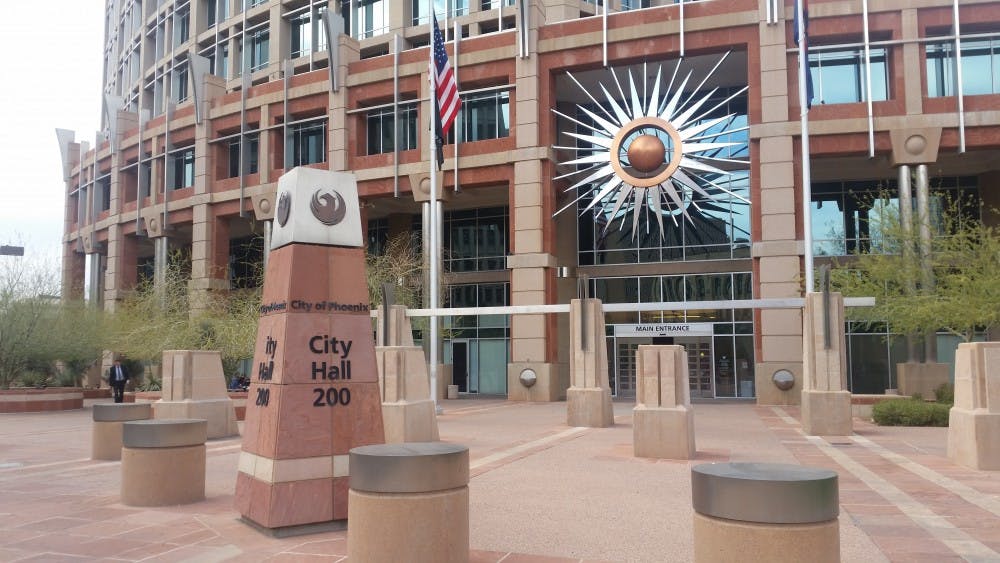The City of Phoenix’s entrance into the Fast Track Cities Initiative has the power to end the HIV/AIDS epidemic in the Valley, but they need the cooperation of the entire region to succeed.
Last week, Mayor Stanton nominated the membership of Phoenix’s Fast Track Cities Initiative Ad Hoc Committee (FTCI). The initiative, conceived as a partnership between UNAIDS, the City of Paris and the International Alliance of Providers of AIDS Care (IAPAC), now includes Phoenix as the 11th U.S. city and one of more than fifty globally who work to share their work in ending HIV at a local level.
The goals of the program are simple and follow the framework called 90-90-90, where HIV is “controlled” once 90 percent of persons living with HIV are aware of their status, 90 percent of people that know their status are on anti-HIV medications and 90 percent of people on medication are what is called virally-suppressed, or unable to transmit the virus to a partner. These are laudable goals which the ad hoc committee is working to organize around already.
The committee, as previously reported by the State Press, does not seek to reinvent the wheel. Instead, it includes members like Glen Spencer of Aunt Rita’s Foundation, Dr. Thanes Vanig of Spectrum Medical Group, Kirk Baxter of HEAL International and Peter Taylor of the International Alliance for the Prevention of AIDS, all of whom are already working locally and far beyond to end HIV.
However, all membership of the committee must, per current guidelines, work or live within the boundaries of the City of Phoenix.
David Longoria of City of Phoenix District 4 Councilwoman Laura Pastor’s office believes that working with organizations means that this work will go far beyond the City of Phoenix boundaries, with significant positive spillover for the entire Valley.
He’s not wrong. HEAL International, IAPA, and Aunt Rita’s all do some outreach work on ASU’s Tempe Campus. For example, Aunt Rita's was part of the World AIDS Day health fair on Nov. 30, 2016.
Nevertheless, ASU’s representation within the ad hoc committee was significantly curtailed by the lack of Tempe’s presence within the program. While ASU’s Director of Cultural Relations and Special Protects, Kenja Hassan, is included, I personally believe that ASU’s health services should be brought on to the program.
Tempe campus provides sixty thousand students a place to get educated, but we are also the same demographic that is most at risk of HIV transmission and in a place traditionally associated with relatively lax attitudes towards safer sex practices. ASU would benefit from more integration of its work with the FTCI.
The City of Phoenix is not against working alongside its suburbs, it simply is stuck using what it has been given with its charter city status.
“There's no regional mechanism by which we can attack this, but there is a city mechanism,” Longoria said.
This means that regional infrastructure must be produced in order to get other cities like Tempe on board.
Tempe, however, seems to not be aware of the program. The mayor’s office had heard little about the program when contacted, indicating the lack of discussion between the two municipalities.
The Phoenix program is working with amazingly capable groups. I’ve seen firsthand the power of many organizations involved in the Fast Track Cities Initiative.
Criticism of the program really should focus on the problem of fragmentation within the county. While Maricopa County is certainly more united than the disaster that is Saint Louis County, where nearly 80 municipal divisions not including the independent central city are under fire for an inability to work together, the divisions between municipalities mean that greater coordination is necessary.
If these divisions can be overcome — at the time of this writing, several committee members plan to speak with the City of Tempe, so they are not insurmountable — then Fast Track Cities Phoenix has the potential to be an international success.
It just requires that the ad hoc committee form an equally ad-hoc inter-municipal solution.
Reach the columnist at benjamin.steele@asu.edu or follow @blsteele17 on Twitter.
Editor’s note: The opinions presented in this column are the author’s and do not imply any endorsement from The State Press or its editors.
Want to join the conversation? Send an email to opiniondesk.statepress@gmail.com. Keep letters under 300 words and be sure to include your university affiliation. Anonymity will not be granted.
Like The State Press on Facebook and follow @statepress on Twitter.




